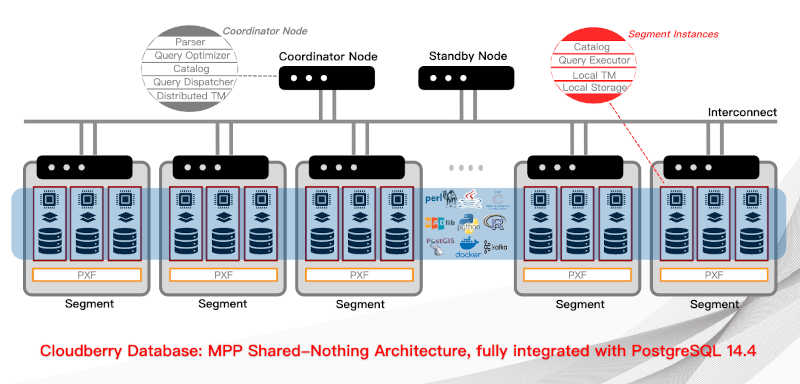| Greenplum's Cloudberry Fork Enters Apache Incubator |
| Written by Nikos Vaggalis |
| Tuesday, 17 December 2024 |
|
Cloudberry is the open source equivalent of Greenplum. It all began about six months ago. Greenplum's Github repositories was archived and went dark. This meant no more free new releases or security and bug fixes for its users. Why? Because in May 2024, Tanzu made the decision to close-source the project. Maybe it made financial sense to do that, seeing that its open source product was extensively used by companies on the Fortune 500 list. This is a strategy that others like Redis have already adopted, something that subsequently led to them being forked. In the case of Redis the fork was Valkey and we explored the story in Valkey's Expanding Ecosystem. And as a matter of fact Greenplum, as well as TimescaleDB YugabyteDB and others, started life as a fork of PostgreSQL! These PostgreSQL forks occupy top places in DB-Engines' ranking, with Greenplum being popular among the ranks of big enterprise because it scales well in OLAP and analytics scenarios, which are the bread and butter of that trade. Those enterprises might afford to pay licenses fees for the now closed-source version, but for those not liking the new closed source proposition there's still hope since Greenplum's open spirit now lives inside Cloudberry's body.
Note that Cloudberry wasn't spawned because of Greenplum going closed-source. It was actually launched by the original Greenplum developers two years before that event, in 2022, and its source code was made open in 2023. The difference now is that the project is under the Apache Foundation umbrella. This is reassuring for those users who want to migrate to it since the status of the foundation guarantees long lasting development and maintenance. The official statement states: on November 5th, 2024, the Cloudberry project repositories were transferred to the Apache Software Foundation. With this transition, Cloudberry has fully joined the incubator and begun its development under the Apache umbrella. Additionally, the Cloudberry Database is now proudly rebranded to Apache Cloudberry (Incubating). Incubating means entering the Apache Incubator which is the primary entry path for projects and codebases wishing to become part of the efforts at The Apache Software Foundation. The next step for a project of that status is to graduate from incubator into a TPL, top level project, something that shows great maturity and community involvement. While it is far too early for Cloudberry to reach TLP status, and as in the case of Valkey's Redis fork, the student might have already outperformed its master. This might be the case for Cloudberry too since it sports a newer PostgreSQL kernel than Greenplum, enhanced security, end-to-end performance optimization, AI/ML workloads and streaming, lakehouse integration, and more. Its status is production-ready, hence you can go ahead and build it from source, or quickly start with the Docker based sandbox. The latter also comes with a solid bootcamp to get you started. Judging from the project's road map
there's both a lot of work ahead and a great future. More InformationRelated ArticlesTo be informed about new articles on I Programmer, sign up for our weekly newsletter, subscribe to the RSS feed and follow us on Twitter, Facebook or Linkedin.
Comments
or email your comment to: comments@i-programmer.info |
| Last Updated ( Tuesday, 17 December 2024 ) |




